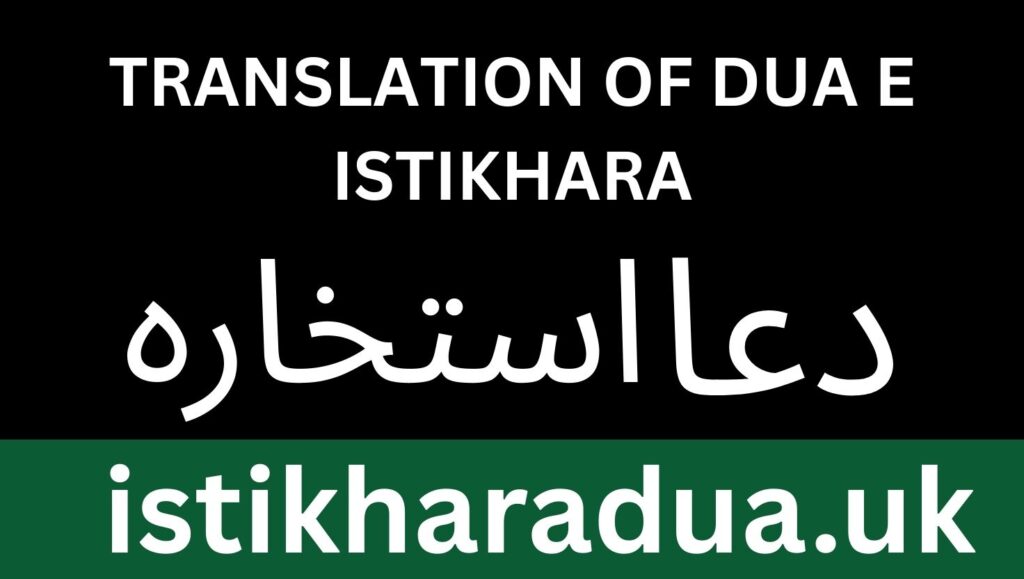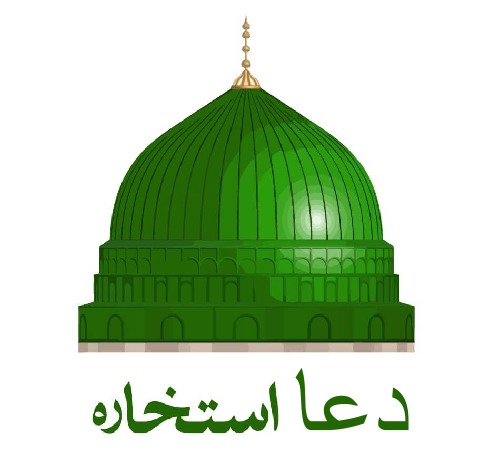
Translation of Dua e Istikhara: A Guide to Divine Guidance
The translation of Dua e Istikhara is a supplication in English asking Allah for guidance after two voluntary rak’ahs, seeking the best path in decisions like marriage or career, ensuring peace and divine alignment. (35 words)
Understanding the Power of Dua e Istikhara’s Translation
Have you ever faced a decision so tough it kept you up at night, heart heavy with doubt? Maybe it’s choosing between two job offers or wondering if a marriage proposal is right. I’ve been there, staring at the ceiling, wishing for a clear sign. That’s where the translation of Dua e Istikhara comes in—a lifeline that lets you connect with Allah’s wisdom, even if Arabic isn’t your first language. It’s like having a direct conversation with the One who knows all.
In Islam, seeking guidance is a cornerstone of faith. The Quran assures us in Surah Al-Baqarah (2:186): “And when My servants ask you concerning Me, indeed I am near. I respond to the invocation of the supplicant when he calls upon Me.” This verse invites us to turn to Allah, and Dua e Istikhara, rooted in the Sunnah, makes it accessible through its English translation.
The Hadith in Sahih al-Bukhari narrates that Prophet Muhammad (PBUH) taught his companions Istikhara for every matter, like learning Quranic verses. Jabir ibn Abdullah reported: “The Messenger of Allah (PBUH) used to teach us Istikhara in all matters…” Scholars like Sheikh Omar Suleiman emphasize that the dua’s translation helps non-Arabic speakers connect deeply, ensuring sincerity over language barriers.
The Translation of Dua e Istikhara: Text and Meaning
Let’s dive into the heart of the matter—the dua itself. Below is the authentic text, transliteration, and English translation to make it beginner-friendly.
- Arabic: اللَّهُمَّ إِنِّي أَسْتَخِيرُكَ بِعِلْمِكَ وَأَسْتَقْدِرُكَ بِقُدْرَتِكَ وَأَسْأَلُكَ مِنْ فَضْلِكَ الْعَظِيمِ فَإِنَّكَ تَقْدِرُ وَلَا أَقْدِرُ وَتَعْلَمُ وَلَا أَعْلَمُ وَأَنْتَ عَلَّامُ الْغُيُوبِ اللَّهُمَّ إِنْ كُنْتَ تَعْلَمُ أَنَّ هَذَا الْأَمْرَ خَيْرٌ لِي فِي دِينِي وَمَعَاشِي وَعَاقِبَةِ أَمْرِي فَاقْدُرْهُ لِي وَيَسِّرْهُ لِي ثُمَّ بَارِكْ لِي فِيهِ وَإِنْ كُنْتَ تَعْلَمُ أَنَّ هَذَا الْأَمْرَ شَرٌّ لِي فِي دِينِي وَمَعَاشِي وَعَاقِبَةِ أَمْرِي فَاصْرِفْهُ عَنِّي وَاصْرِفْنِي عَنْهُ وَاقْدُرْ لِي الْخَيْرَ حَيْثُ كَانَ ثُمَّ أَرْضِنِي بِهِ
- Transliteration: Allahumma inni astakhiruka bi’ilmika wa astaqdiruka biqudratika wa as’aluka min fadlikal-‘azim…
- English Translation: O Allah, I seek Your guidance by virtue of Your knowledge, and I seek ability by virtue of Your power, and I ask You of Your great bounty. You have power; I have none. And You know; I know not. You are the Knower of hidden things. O Allah, if in Your knowledge this matter is good for my religion, my livelihood, and my affairs, then ordain it for me, make it easy for me, and bless it for me. And if in Your knowledge it is bad for my religion, my livelihood, and my affairs, then turn it away from me, and turn me away from it, and ordain for me the good wherever it may be, and make me content with it.
Istikhara Meaning: The dua asks Allah to choose what’s best for your faith, life, and hereafter, trusting His infinite knowledge over our limited perspective. Replace “this matter” with your specific issue, like “this job” or “this marriage.”
Scholars like Mufti Menk stress pronouncing it correctly but note that sincerity trumps perfection. For help with pronunciation, see our guide on Istikhara Dua English Version.
How to Perform the Istikhara Prayer
Feeling unsure about the steps? Let’s make it simple, like a friend walking you through it:
- Set Your Intention: Decide what you need guidance on, like a career move or marriage. Be clear and neutral.
- Pray Two Rak’ahs: These are voluntary (nafl) prayers, done outside forbidden times. Recite Surah Al-Fatihah and short Surahs like Al-Kafirun and Al-Ikhlas.
- Recite the Dua: After salam, say the Dua e Istikhara in Arabic or English, inserting your matter.
- Look for Signs: Notice ease or obstacles in your path. Dreams aren’t required, as per Hadith.
For beginners, try it at night for focus. Learn more about prayer basics in How to Pray Salah Correctly.
Benefits of Understanding the Translation
Why use the translation of Dua e Istikhara? It makes the dua accessible, deepening your connection to its meaning. The Quran’s Surah Ash-Sharh (94:5-6) reminds us: “Indeed, with hardship [will be] ease.” This dua eases anxiety by fostering tawakkul (trust in Allah).
It’s especially helpful for non-Arabic speakers seeking guidance in decisions like Istikhara for marriage. Islamic Relief notes it builds faith and clarity, aligning choices with divine will. Plus, it protects from regret by entrusting outcomes to Allah.
Beginner Tips for Reciting Dua e Istikhara
New to this? Here’s how to start without stress:
- Focus on Meaning: Reflect on the English translation to feel its depth.
- Practice Pronunciation: Use audio guides if reciting in Arabic.
- Pray Sincerely: Allah values your heart, not perfection.
- Consult First: Seek advice before Istikhara, as per Sunnah.
- Be Patient: Guidance unfolds gradually—trust the process.
For more supplications, explore Daily Duas for Peace.
Busting Myths About Dua e Istikhara
Misconceptions can make you hesitant. Let’s clear them up with scholar-backed facts.
Myth 1: You Need a Dream. Not true! The Hadith doesn’t require dreams; guidance comes via ease or barriers. Yasmin Mogahed notes it’s about facilitation, not signs.
Myth 2: Arabic Only. The English translation is valid if sincere, per SeekersGuidance.
Myth 3: Only for Big Decisions. The Hadith says “all matters,” from small to large.
Myth 4: Someone Else Must Pray It. It’s personal—your direct plea to Allah is best.
These clarifications remove barriers, making the dua approachable.
Real-Life Examples: How the Dua Guided Lives
Stories bring it to life. Here are anonymized examples inspired by real experiences.
Example 1: Job Decision. A young professional prayed Istikhara in English about relocating. Post-prayer, the move felt uneasy, and a local job opened, bringing peace.
Example 2: Marriage Clarity. A woman used the English translation for a proposal. Barriers arose, leading her to decline and later find a better match.
Example 3: Business Venture. A man prayed about a partnership; obstacles confirmed it wasn’t right, saving him from loss.
These show how the dua for guidance transforms uncertainty.
Case Study: Noor’s Journey with Istikhara Translation
Noor, a 27-year-old convert in Canada, struggled with a marriage proposal. Raised in a non-Arabic-speaking home, she felt disconnected from Islamic practices. Anxious about the decision, she learned the translation of Dua e Istikhara to connect with its meaning. After consulting family, she prayed nightly, reciting the dua in English with heartfelt sincerity.
No vivid signs came, but she felt unease about the proposal. As Sheikh Faraz Rabbani explains, guidance often comes through feelings or events. The suitor’s inconsistencies surfaced, and Noor declined, feeling peace. Months later, she met someone aligned with her values, crediting Istikhara.
Noor shared on a forum: “The English translation made me feel Allah was listening. It turned my fear into trust.” This reflects Quran’s Surah An-Nahl (16:43): “So ask the people of the Reminder if you do not know,” yet divine guidance prevails. Noor’s story shows how the dua addresses pain points like language barriers and doubt, fostering faith for converts and beginners.
Practical Tips: When and How to Use the Translation
Wondering when to use it? Anytime you need clarity on halal matters. The English translation helps non-Arabic speakers, but reciting in Arabic with understanding is ideal. Pair with Quran reading for calm—try Verses on Patience.
Frequently Asked Questions About Dua e Istikhara
What is the translation of Dua e Istikhara?
It’s an English supplication asking Allah for guidance in decisions, prayed after two rak’ahs, seeking what’s best for faith and life.
Can I recite Dua e Istikhara in English?
Yes, the English translation is valid if sincere, though Arabic is preferred with understanding, according to scholars.
What’s the meaning of Istikhara prayer?
It means seeking Allah’s choice for what’s best in your religion, livelihood, and future, trusting His wisdom.
Is a dream needed after Istikhara?
No, dreams aren’t required. Guidance often appears through ease or obstacles in the path, as taught in Hadith and explained by scholars.
When to use Dua e Istikhara?
Use Istikhara for any halal decision after research and consultation, especially when uncertain. Many recommend performing it at night for better focus.
How to understand Istikhara signs?
Look for ease or barriers in the path and inner feelings of comfort or discomfort. If unclear, repeat the dua and trust Allah's wisdom.
Is the translation enough for beginners?
Yes, translation helps beginners connect to the meaning. Practice with sincerity; learning the Arabic text can follow gradually.
Author Bio
Maira Kamran is a passionate content writer dedicated to creating informative and engaging content that resonates with readers. With a focus on Islamic practices and lifestyle, Maira aims to provide valuable insights to help readers navigate their spiritual and everyday lives. Visit her whatsapp, for more helpful resources and guides.
